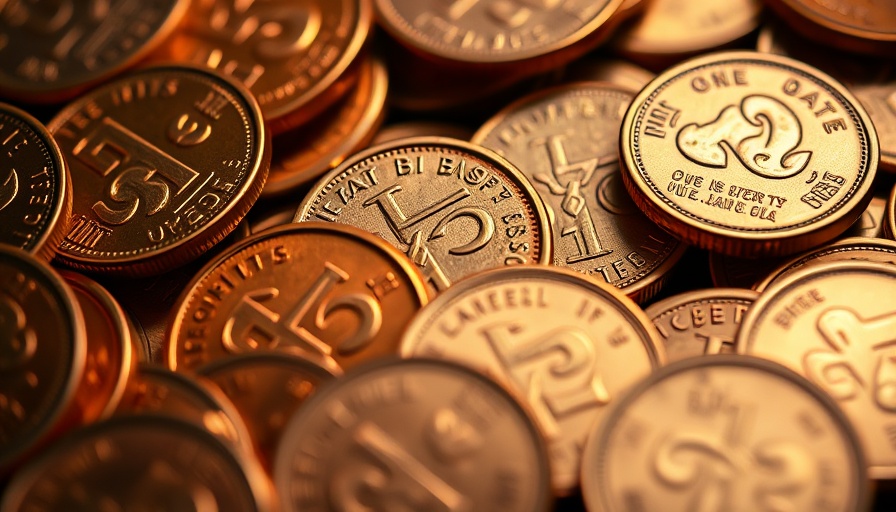
The End of an Era: What Happens to Our Pennies?
The recent announcement from the U.S. Treasury to halt the production of new penny coins marks a significant turning point in American culture and currency. While pennies have long been seen as an emblem of our economic system, their phase-out raises several questions about how we perceive and use money in our day-to-day lives.
Why the Penny's Phase-Out Matters
For over 200 years, pennies have been a staple in our wallets and pockets, frequently sparking the phrase, "See a penny, pick it up, all the day you’ll have good luck!" Yet, as consumer habits shift towards digital transactions, many argue that the penny’s economic utility has diminished. Chancellor Frank Holt, a noted expert in numismatics, emphasizes that beyond their monetary value, pennies act as cultural artifacts. He laments the loss of these small treasures, asserting that future generations of archeologists will be left without clues to our past.
The Cultural Significance of Coins
Historically, coins have served not only as currency but also as a means of storytelling. Professor Ursula Dalinghaus from Ripon College highlights that price tags ending in $.99 play a psychological role in consumer behavior, subtly implying a better deal. The importance of pennies stretches into the realms of ritual and tradition, encompassing notions of luck and connection to loved ones in the afterlife. As we bid farewell to new pennies, we must consider what that means for our cultural narrative.
Looking Ahead: The Future of Currency
The conversation surrounding the penny opens up a wider dialogue about the future of money as we increasingly transition to cashless societies. This change has been ground-breaking for many individuals who may find it difficult to adapt. Even for those who rely on physical currency, the end of standard coin production could be a tectonic shift, reflecting broader trends that might reshape how we understand and interact with value and exchange.
What Can We Do?
As we contemplate this significant shift, it’s crucial to acknowledge how we relate to money as individuals and as a society. Reflecting on the importance of all denominations and their meanings could inspire a renewed appreciation for the history and culture tied to our currency.
In the midst of all these changes, consider the small financial acts that contribute meaningfully to our everyday lives, encouraging budgeting practices among those who may find cash critical. The discussion surrounding pennies may be a small one, but it’s a microcosm of a larger transformation we are undergoing as a society.
 Add Row
Add Row  Add
Add 




Write A Comment